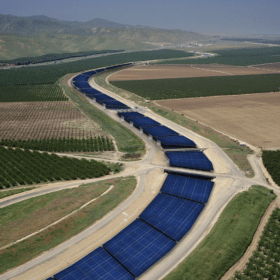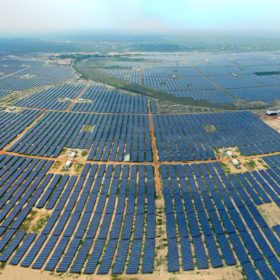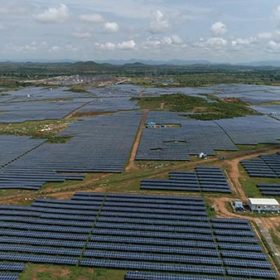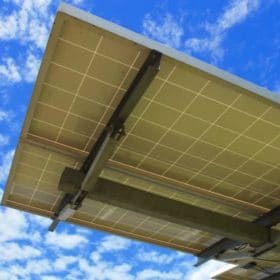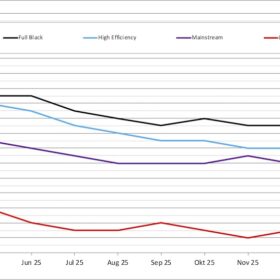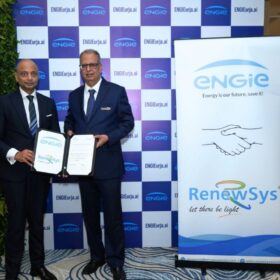Solar canals already competitive with ground-mounted PV
U.S. researchers have assessed the technical and economic feasibility of solar canals in California and have found that their LCOE is already close to that of ground-mounted solar plants. Three different project configurations were analyzed for eight different sites across the California network of canals.
BHEL secures its first overseas EPC contract for grid-connected solar plant
The state-run has been awarded an 8 MWac grid-connected solar power plant in Mauritius on an engineering, procurement, and construction (EPC) basis.
India’s $122bn energy stimulus spending may benefit fossil fuels most
A report says India’s energy investment commitments over the last 14 months largely feature measures for power transmission and distribution that could benefit greenhouse-gas-producing fuels more than renewables.
Adani Green to acquire Canadian developer SkyPower Global’s 50 MW solar asset in India
The Indian developer has signed an agreement with the Canadian developer to acquire its 50 MW Telangana solar project at an enterprise value of around INR 317 crore.
Adani Green Energy raises US$ 1.35 billion in debt funding
The developer has secured the revolving fund from 12 international banks. It would use the amount to initially finance its 1.69 GW hybrid portfolio of solar and wind projects to be set up in the Indian state of Rajasthan.
TCIL seeks EPC partners for 5 GW solar tendered under CPSU Scheme
Telecommunications Consultants India (TCIL) has issued an expression of interest to select EPC partners as it intends to bid for the 5 GW grid-connected solar capacity tendered for state-run generators. Installers have until March 24 to lodge their interest with TCIL.
Gujarat retenders 700 MW in Dholera Solar Park and 100 MW in Raghanesda
With non-solar park auction yielding a much lower tariff of INR 1.99/kWh, the Gujarat Urja Vikas Nigam Limited (GUVNL) has retendered the capacities for fresh tariff discovery. Bidding closes on April 12.
Solar tariffs could rise about 20% due to customs duty
The installation cost is set to increase as a 40% customs duty on solar modules, and 25% on cells, comes into effect from next year.
AC Energy, UPC Solar JV raises funding to develop 100 MW Rajasthan project
UPC-AC Energy Solar has closed a debt-to-equity financing deal with the US International Development Finance Corporation (DFC) to develop a 100 MW PV project in Rajasthan.
Drones playing a critical role in India’s solar boom
Drones, in combination with artificial intelligence, are helping to drive powerful insights, allowing teams to make better-informed decisions throughout the solar project development lifecycle.
